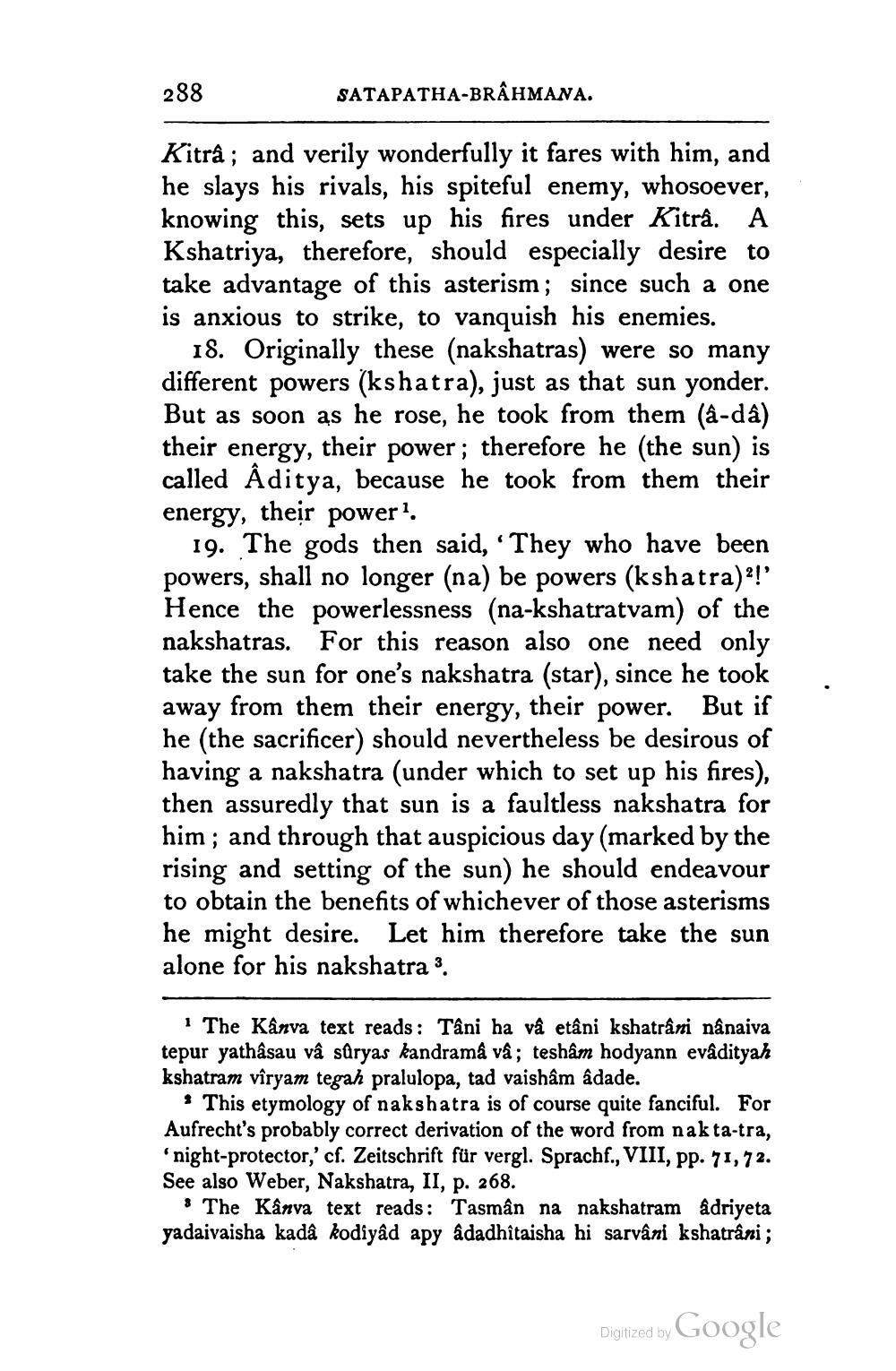________________
288
SATAPATHA-BRAHMANA.
Kitrâ; and verily wonderfully it fares with him, and he slays his rivals, his spiteful enemy, whosoever, knowing this, sets up his fires under Kitra. A Kshatriya, therefore, should especially desire to take advantage of this asterism; since such a one is anxious to strike, to vanquish his enemies.
18. Originally these (nakshatras) were so many different powers (kshatra), just as that sun yonder. But as soon as he rose, he took from them (a-da) their energy, their power; therefore he (the sun) is called Aditya, because he took from them their energy, their power!
19. The gods then said, “They who have been powers, shall no longer (na) be powers (kshatra)?!' Hence the powerlessness (na-kshatratvam) of the nakshatras. For this reason also one need only take the sun for one's nakshatra (star), since he took away from them their energy, their power. But if he (the sacrificer) should nevertheless be desirous of having a nakshatra (under which to set up his fires), then assuredly that sun is a faultless nakshatra for him; and through that auspicious day (marked by the rising and setting of the sun) he should endeavour to obtain the benefits of whichever of those asterisms he might desire. Let him therefore take the sun alone for his nakshatra 3.
1 The Kanva text reads: Tâni ha vâ etâni kshatrâni nânaiva tepur yathâsau vâ sûryas kandramå vâ; teshâm hodyann evadityah kshatram vîryam tegah pralulopa, tad vaishâm âdade.
* This etymology of nakshatra is of course quite fanciful. For Aufrecht's probably correct derivation of the word from nak ta-tra,
night-protector,' cf. Zeitschrift für vergl. Sprachf., VIII, pp. 71, 72. See also Weber, Nakshatra, II, p. 268.
The Kanva text reads: Tasman na nakshatram adriyeta yadaivaisha kada kodiyâd apy adadhỉtaisha hi sarvâni kshatrâni;
Digitized by Google
Digitized by




